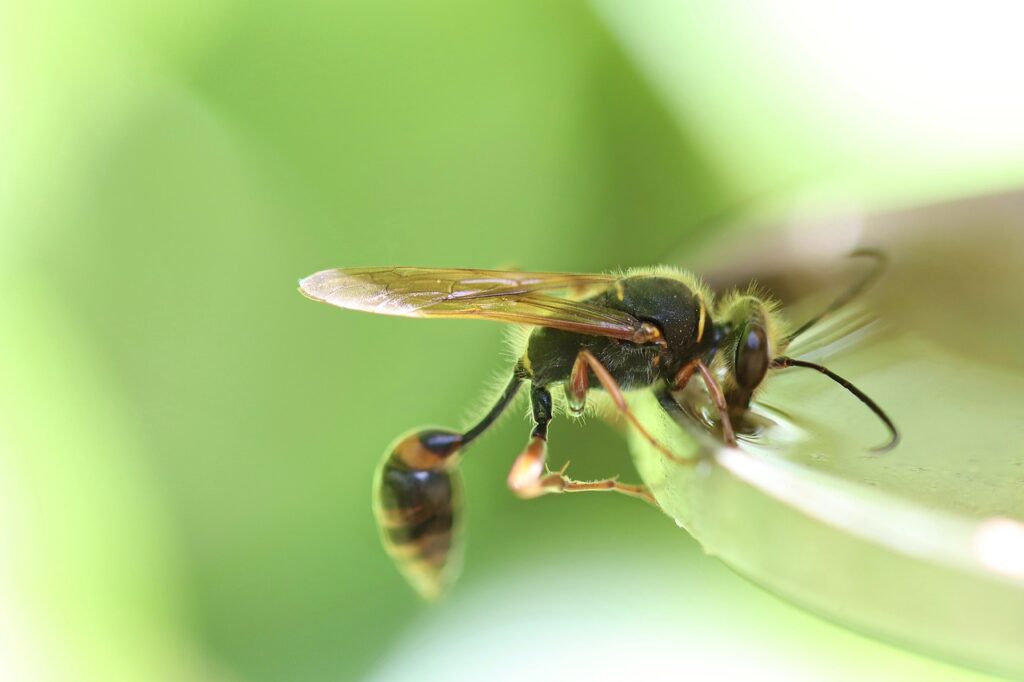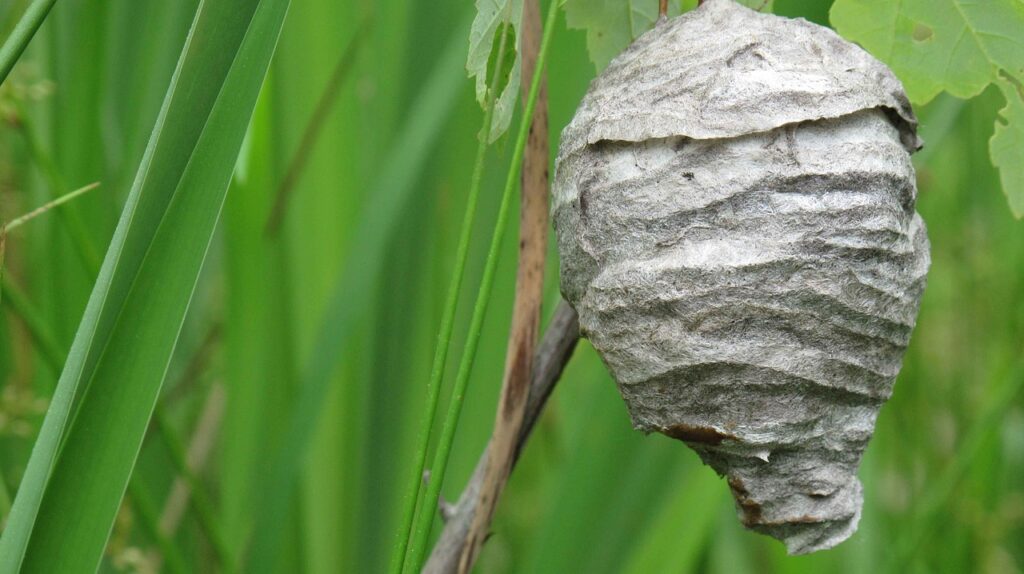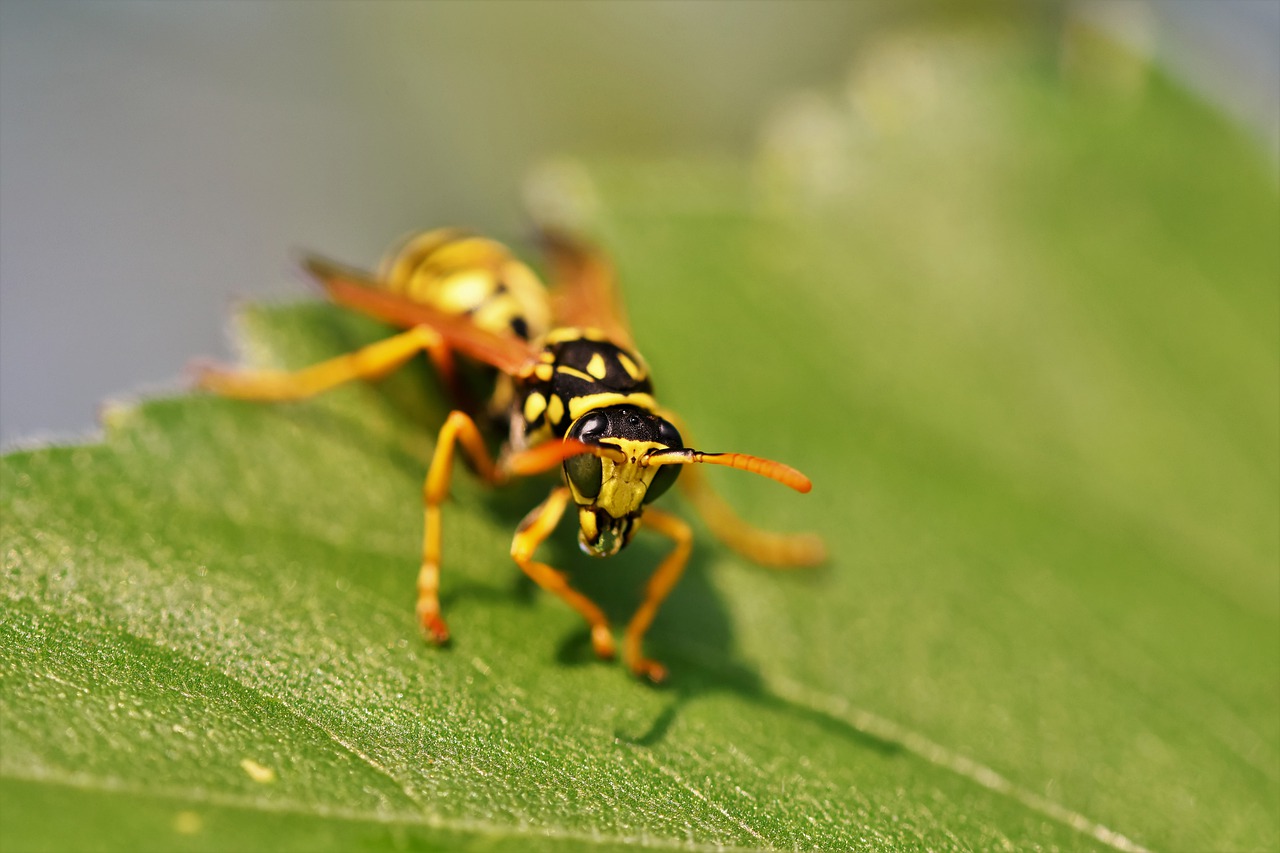Wasps can be very dangerous. They can be very aggressive, especially when threatened. Their stings can result in anaphylaxis, a deadly allergic reaction. You want your home to be as wasp-free as possible, but how do you keep wasps away? Here are six simple tips to keep wasps away from your home and loved ones.
1. Seal all entry points
Why are wasps attracted to human homes? Like other pests, wasps are attracted to human homes because of food and shelter, especially during the colder months. You are making your home an attractive shelter if it is easy to infiltrate. Make sure to seal all possible entry points so wasps can’t get inside easily.
- Seal cracks and holes. Wasps can squeeze through the tiniest cracks and holes throughout your home. Give particular attention to your eaves, ledges, porches, lofts, and roofs. Seal all the cracks and holes you find, no matter how small they may be. Consider replacing the wood if you think you can’t seal the damages properly.
- Cover all openings. Doors, windows, chimneys, ventilation slots – don’t forget these openings. They may appear straightforward, but you will be surprised by the number of people who leave their doors and windows open. Use wire meshes to cover chimneys and ventilation slots. Wasps can’t chew through metal.
2. Cover your trash bins
Another thing that attracts wasps into your home is food. Your trash bins are food havens, especially those in your dining area and kitchen. Make your trash bins inaccessible by covering them up.
- Use trash bins with lids. Wasps use their sense of sight and smell to search for resources. If they can see and smell your trash, they are likely to swarm in your trash bins. Keep wasps away by using trash bins with lids. This way, the wasps will not be able to see or smell those attractive food items and drinks inside these food havens.
- Avoid letting your trash bins overflow. Your trash bins with lids will be useless if you have poor waste management. The trash will just overflow and flip the lids open. To prevent this from happening, regularly empty your trash bins.

3. Avoid leaving food items and drinks outside
You may also have food items and drinks outside your home, especially during warmer months where you do barbecues and picnics or if you have pets. If you don’t want wasps around your home, make sure you are not leaving traces of food items and drinks in your garden, lawn, or yard.
- Clean up after eating and drinking outside. Wasps have food preferences. During the colder months, they prefer sweet items like sodas and sugars to sustain themselves. And during the warmer months, they prefer protein-rich foods to help develop larvae. Keep this in mind as you keep your home’s exterior free of food items and drinks.
- Don’t leave your pet’s food and water unattended. If you have pets that like to hang out outside, you probably have dedicated bowls for their food and water needs. But your pets are not the only ones benefiting from these bowls. Wasps buzzing around the area may find them and get their own fill. Another problem is the fact that wasps remember where they have found food and water. They will come back if they happen to find food and water outside your home.
4. Set up a fake nest
You can set up a fake wasp nest outside your home to prevent wasps from buzzing around your property. This may seem comical, but it’s very effective. Wasps are very territorial. This is one of the reasons why you should really get rid of wasps if you have an infestation near your home. You can be just hanging out in your yard. Then a wasp will attack you simply because you are near its colony. Other wasps are aware of this aggressive and territorial nature. If they see a wasp nest nearby, they will fly away to avoid getting attacked.
- Buy or make your own fake nest. Fake wasp nests are relatively easy to find even on online stores like Amazon and Etsy. You may also find them in gardening supplies and pest control stores. If you don’t have access to fake wasp nests, you can make one yourself with some paper bags, newspapers, and strings.
- Put the fake nest on common wasp nesting areas. Put the fake nest in a place where they can easily be spotted by wasps. It’s ideal to put them on places where you usually find real wasp nests, like under eaves, at the corners of pillars and posts, and even in bird boxes.

5. Use wasp repellents
Spray wasp repellents on your doors, windows, and on areas where the wasps can nest. There are two kinds of wasp repellents available for you. You can go the artificial route and use insecticides. You can also go the natural route and use essential oils.
- Look for wasp repellents in the market. Only use insecticides that are registered with the national government. Also, make sure to follow the instructions on the labels. If you don’t, the insecticides may be dangerous and ineffective. Remember that most of these insecticides have harmful ingredients too, so keep that in mind if you are thinking of spraying them on your flowers.
- Go natural. There are also a lot of natural ingredients that naturally repel pests like wasps. You can find essential oil versions of most of these natural ingredients, like citronella, eucalyptus, and peppermint. Dilute a few drops of the essential oil in water and spray the solution around your home.
6. Get professional help
But what if it’s already too late to do these tips because you are already suffering from a wasp infestation? Don’t DIY your way out of this problem. Wasps are dangerous and you are better off asking for professional help.
- Don’t try to get rid of the wasp nest yourself. Wasps are very territorial. Even if you just smack their nest, they will become aggressive. The last thing you want is a colony of wasps trying to defend itself. Call professional pest controllers. They will know what to do. And they also have the proper safety gear to shield themselves from wasp attacks.
- Consider moving the nest instead of destroying it. Wasps may be dangerous, but they play an important role in nature. They are natural pest controllers and pollinators. If the wasp infestation bothering your property is small enough, pest controllers may be able to move the nest to a place where it won’t bother you. But for severe infestations, destroying the nest may be necessary.

